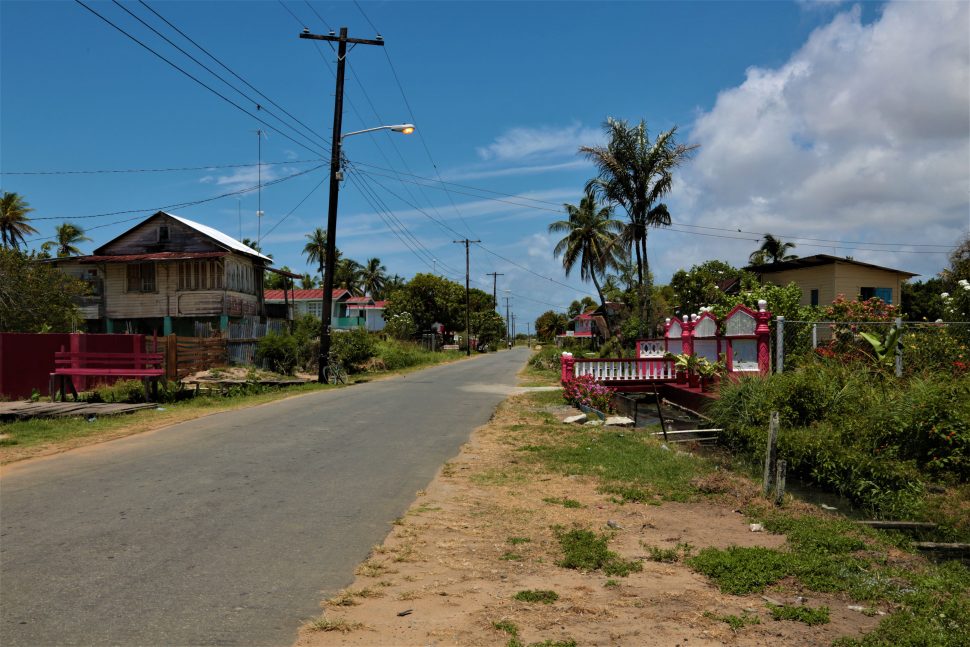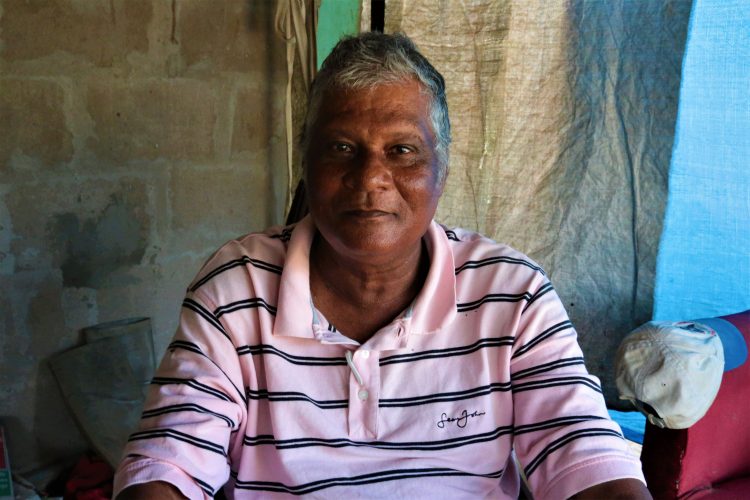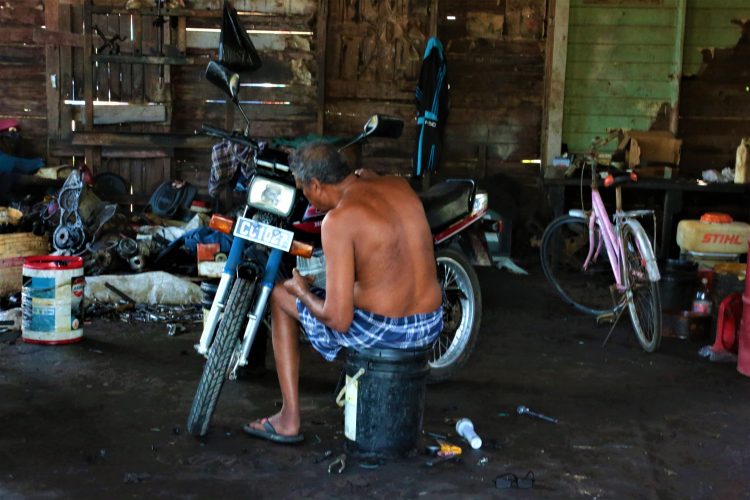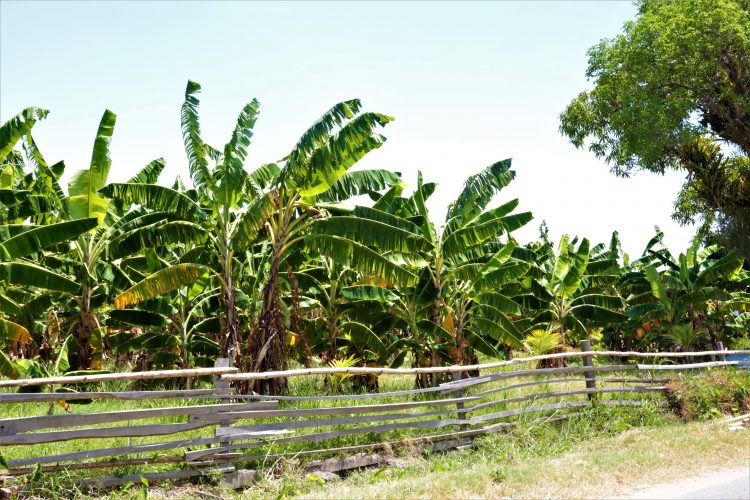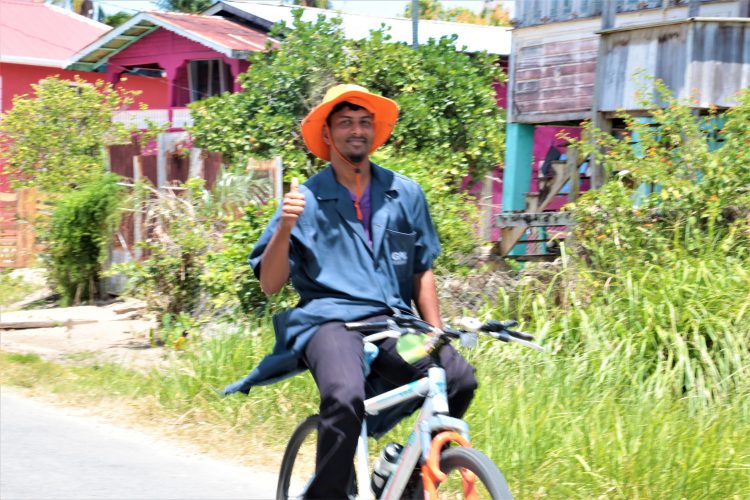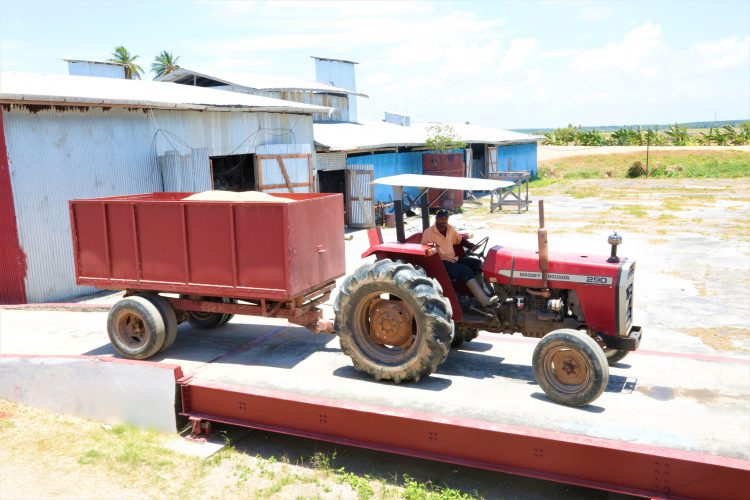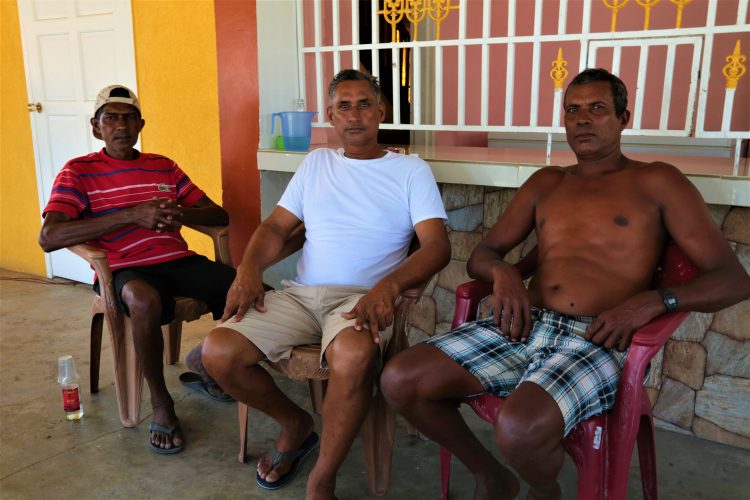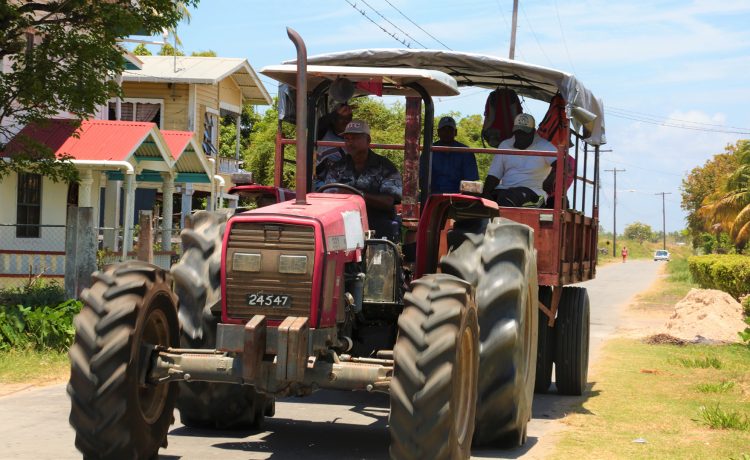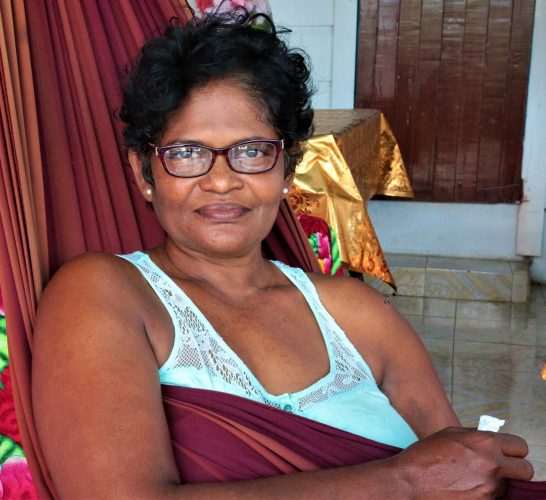La Bagatelle is the largest and busiest of all villages on Leguan Island.
The village’s name is of French origin and it translates to something trivial or small or a light piece of music.
The Leguan Post Office, Police Station and Guyana Water Incorporated office are situated at the beginning of the village. La Bagatelle has several businesses including a mechanic shop, two grocery shops, a liquor restaurant as well as an off-licence liquor shop and a barber shop. The village has a pharmacy and a rice mill also. Several workers were busy at the rice mill and at the liquor restaurant three men were imbibing; there was no one else in sight, though the village is said to have 445 residents.
Derrick Singh came riding along the road. He was returning from his job with the Neighbourhood Democratic Council (NDC); he is a councillor. “I am a Georgetown boy,” he told me. “But after meeting my wife I came to La Bagatelle to live. At the time I met my wife [I] was working as the Regional Information Officer in Region Eight. I worked there from 1985 to 1992. Prior to this I worked with the Guyana Chronicle as the Advertising Compositor.
“Life in La Bagatelle is very quiet. We don’t have many rice farmers as in other parts of the island. One of my neighbours, he is a cash crop farmer. He plants corn also. Some people here work with the region.
“We have the most children [on the island] living in this village. La Bagatelle is between Enterprise and another village called Maryville although the La Bagatelle Nursery School and the Maryville Primary are in the village after Maryville known as Belfield. Weird right?”
Singh is also a member of the Local Board of Guardians which is responsible for old age pension and public assistance. As one of the NDC members, the 67-year-old man would visit various parts of the island listening to issues the islanders may have.
Just recently, one of the issues the NDC had to deal with was the flooding of one of the villages after a farmer paid someone to stop a self-acting door at the outfall so that water would flow to his rice field. However, Singh said, the council has adopted a position whereby farmers needing water for their farms can make an application to the NDC for a tide or two providing they pay a security deposit of $5,000. The security deposit, he said, will be refunded providing that the individual closes the door after the given two tides. This particular individual did the opening on the weekend when the NDC office was not open and did not return to close the outfall resulting in the flood.
“We had to get two of our guys to go on Sunday after the tide went down to remove the brick that they would have chocked the door with and close the door back. We found out who the two guys were and made a report to the station. They were on the bench for six hours. This has happened a number of times prior to now. It was very sad because water was two feet under some people’s houses. Some of these residents have their kitchen downstairs,” Singh said.
He said the village needs better drainage since it is a sandy area and sand washes into drains easily. The NDC has since written to the Regional Democratic Council for a mini excavator to do the job.
“People in La Bagatelle are very conscious about church. There is the Seventh-day Adventist Church in the village, the Pentecostal Church in Enterprise which the residents go to. There are also Hindus and Muslims. The temple is situated in the village. There is no mosque. Everybody makes the time to go to their own [place of worship]. Yet, none of this divide us; we live in harmony. That’s one of the beauties about living here,” Singh said.
“I’m from a village on the northern side of the island called Richmond Hill then I married and come this way. Here is more populated than Richmond Hill,” Sursattie Persaud said.
She said there was a high unemployment rate adding that because of the current drought many farmers were unable to plant.
Persaud said her husband works with the Transport and Harbours Department and is one of the lucky ones to hold a job. “Before I had kids, I used to work a lot in the backdam cutting rice and plant gardens,” she said. “I used to sell at the Leonora Market also. There is no market here on the island. I used to go and come with the ferry. That time didn’t have speedboat; this was back in the 1980s. I used to go on Friday and come back on Saturday. I used to sleep at the market. Life was difficult but they were the sacrifices I had to make to see my children educated. I don’t regret. My two boys are educated. They both have jobs now.” She said neither of them lives on the island.
One of the challenges she faces is living a stone’s throw away from persons who rear chickens. When it rains, she said, the atmosphere is unhealthy and there is an obnoxious smell. She noted that the person was expanding the business as well and while it is okay to do so, it should not be at the cost of one’s health, adding that if the pens were cleaned often this would not be an issue. She reported the unhealthy state of affairs some five months ago, but nothing has been done. She dreads the coming rains.
Eighty-five-year-old Ishwar Chand, the owner of the rice mill in the village, was about to have his lunch of soup when we met. He hails from Pourderoyen, West Bank Demerara. The former Richard Ishmael student also took lessons at Queen’s College. He later left for England in 1960 where he lived, worked and studied. He returned in 1967. Chand and his family then migrated to the US in 1983.
Chand’s father had owned a general store, a liquor restaurant and Starlight Drive-In Cinema in the mid 1970s. The rice mill, the man said, was opened in 1939 and later bought by his father from a cousin called Guyadeen. His brother owned Chand’s Supermarket and Ishwar himself bought a property which later became Mastian’s Restaurant/ Ice-cream and Food Bar, named after his son who is currently a professor at a university in Houston, Texas.
Chand was born in a home where his father was Hindu and his mother Roman Catholic. Today he is agnostic but attends religious functions when invited.
When he returned to Guyana in 1967, he moved to La Bagatelle to run the rice mill but made daily visits to Georgetown where Mastian’s Restaurant was being run by his then wife. When the family left in 1983, the mill was closed.
Chand returned to La Bagatelle to live here in 2002 and rebuilt the mill, purchasing new machinery. At present, the mill is being rented to Hack and Sons Company. This is the second rice crop since the company took over.
“Ninety percent of the people on the island including La Bagatelle depend wholly and solely on the rice crops… like 10% along with a small percentage from within the 90%… also do cash crops. Some would sell at Parika or at Leonora Market,” Chand said.
The man noted that the canals would have either sweet water or salt water. The sweet water comes from the rain. There are seasons, however, when the water is salt and during this time the farms cannot be watered.
He said that of rice farmers, only 40% to 50% were able to plant this last crop. Many were awaiting the rainy season which never came and have since been left without jobs. “I think maybe the by-products from rice can be looked into,” he said. “For instance, that shell that you see there… it’s a lot of shell that comes out when you are milling paddy. That shell even the straw from the fields… I am sure that can be converted into paper bags. The Chinese do it. People may be reluctant to get into that industry because it may not be feasible to do so. The previous administration established a plantain factory that is not being used. If they had done a proper feasibility study, they might have found that there aren’t enough plantains. I don’t know what they would have done with the plantains except for making plantain chips and plantain flour….”
Chand said La Bagatelle is the ideal place to retire. A normal day for him is spent watching the news and reading books on Mahatma Gandhi, John Kennedy, Nelson Mandela and other political leaders. “I regret dearly that I haven’t gone into politics,” he said, before returning inside to reheat his soup.
Pooran (only name) sat with a few customers having a drink. He owns the liquor restaurant and lamented his monthly water bill, which comes in at $17,000. Pointing to his few customers, he asked if he was going to have a man buy only $100 in rum, how he was supposed to manage such a bill. To reduce his bill, he said, he gives his customers rain water to drink and disposable cups. Meanwhile, the water, he added, has so much rust that white clothing has to be washed with the rain water. His customers also lamented this fact.
The proprietor shared that he has a neighbour who is a pensioner, and whose water was cut because of unpaid bills by other relatives. He ensures that his neighbour has water, he said, as he is not about to see an elderly man suffer.
Pooran said also that he was well travelled and had the opportunity to live overseas, adding that he is the one of his extended family still here owing to his love for La Bagatelle. However, he might have to reconsider because of the hefty water bills along with heavy taxes for owning a liquor restaurant.
Pooran noted that many of the other businessmen on the island are wondering how they will pay their bills as the drought as drastically affected business. He urged that officials look into providing some relief.
